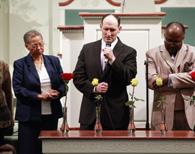Tulsa, Okla. mourns three of its residents after a shooting spree on Good Friday that also left two injured.
law enforcement
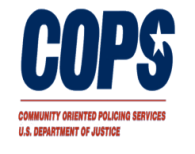
Photo Source: Community Oriented Policing Services Following the tragic events of Sept. 11, Arab and Muslim-Americans across the country have faced political, legislative, and social repercussions that have led to the alienation, stigmatization--and in some cases, violence--against Muslim community members. Among rising hate crimes and anti-Muslim rhetoric, law enforcement agencies have experienced pressure to incorporate tactics such as immigration enforcement, intelligence gathering, surveillance, and racial profiling in "counter-terrorism" training intended to thwart future terrorist attacks.
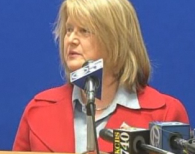
"An attack against one person in our community is an attack against all of us." It's a common feeling among Not In Our Town leaders and it was also the message from San Jose City Councilwoman Rose Herrera, speaking at a press conference yesterday.
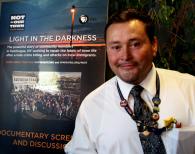
One highly motivated and persistent person can help spark significant action in a community.
That's what Jesse Castaneda did in Silicon Valley. Because of his actions, key civic leaders in Santa Clara County renewed their commitment to prevent hate crimes. Since August 2011, Castaneda has been screening the film Not In Our Town: Light in the Darkness with civic leaders, teachers and immigrant groups. While many leaders in the area have been aggressive about addressing hate crimes, the new film, and Jesse's persistence helped shed light on the dangers of anti immigrant violence, and encouraged people to come together to find new solutions.
Although the activist works full-time in health care, is chair of an immigration reform coalition, and is expecting his first child in a few months, Castaneda has found the time and energy to use the latest Not In Our Town film to help galvanize his community.
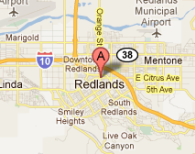
Redlands, a diverse city of 70,000 in California’s Inland Empire, has a city motto: “See Something, Say Something.”
“It’s so important to collaborate with the community. We need more eyes and ears, we solve crimes because someone comes forward,” said Lt. Travis Martinez, Redlands Police Department.
Martinez is in charge of community policing and liaison to the city’s Human Relations Commission. He heard about Not In Our Town: Light in the Darkness through Not In Our Town’s partner, the Department of Justice Community Oriented Policing Services and is utilizing our screening kit to plan his screening and strengthen relationships within the community.
Thanks to prompting from Martinez, the city’s Human Relations Commission will screen and discuss the film on Oct. 19 at the University of Redland’s Orton Center.
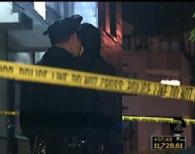
San Francisco District Attorney George Gascon and San Francisco Assistant District Attorney Victor Hwang speak to hate crime victims and the larger community.
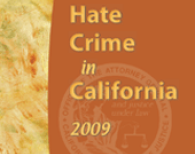
Members of San Francisco's Coalition on Hate Violence say that California's recently-released hate crime report represents a cause for deep concern, but not for reasons you might expect.
According to "Hate Crime in California 2009," released mid-July by the California Department of Justice, there was a 21.3 percent decrease in hate crime incidents last year, from 1,397 incidents in 2008 to 1,100 in 2009.
But coalition members, who represent a cross-section of law enforcement, constituency groups and non-profits, say this apparent decline may not represent an actual drop in hate crime, but a decrease in the reporting of those crimes. As we described in an earlier blog post, hate crime is often under-reported for a variety of reasons ranging from victim fear or lack of access to law enforcement to untrained or resistant police and district attorneys.
Coalition members looked at the statistics for hate crimes in San Francisco -- 80 reported events in 2008, compared to 29 in 2009 -- and said those numbers don't match what their own organizations are seeing on the ground.
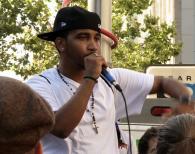
Oakland, CA: Last Thursday, July 8, former BART transit officer Johannes Mehserle was convicted of involuntary manslaughter in the Jan. 1, 2009 death of Oscar Grant, an unarmed young African American man.
As feared, that night saw rioting, looting, and destruction in the streets of downtown Oakland. And that's where the local media trained their cameras.
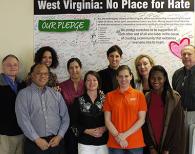
What can a community do when a hate group comes to town and targets a wide variety of organizations, each of which have different ideas of how to respond -- or not?
That's what happened in Charleston and Wheeling, West Virginia in March 2010. The Westboro Baptist Church hate group announced it would picket Jewish and Catholic institutions, a local university, and, as a last-minute addition designed for maximum emotional anguish, the Montcoal Mine, where a dozen miners had just lost their lives.
How could the community respond, particularly when some people preferred to keep a low profile, while others wanted to stage a loud counter-protest? Who could even lead such a community response, given the different values of the targeted groups?
A coalition of local leaders convened at Temple Israel, one of the targeted institutions, and decided they had to present a united front. The message had to be broad enough to include everyone, but specific enough to show opposition to the hatred espoused by Westboro.
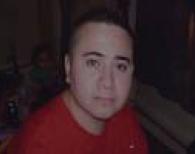
Shenandoah, PA: When two Pennsylvania teenagers were acquitted in May in the fatal beating of a Mexican immigrant laborer, many people, from the victim's widow to the state governor, felt justice had not been served.
Apparently the Department of Justice had similar concerns. And now they're charging local police as well.
On Dec. 10, 2009, Derrick Donchak, 18, and Brandon Pikarsky, 19, were indicted on federal hate crime charges in the July 2008 beating death of 25-year-old Luis Eduardo Ramirez Zavala. The town's police chief and two police officers were also indicted on charges of obstruction of justice and covering up evidence to protect the defendants, who were popular high school football players. Prosecutors told reporters the investigation was spoiled because the officers helped the boys invent a story that concealed the racial motivation for their attack.
Donchak and Piekarsky were acquitted by an all-white county jury of murder, manslaughter, and aggravated assault, Pennsylvania's equivalent of hate crimes. They were found guilty of simple assault and given light jail time. Piekarsky was scheduled for release this month.
